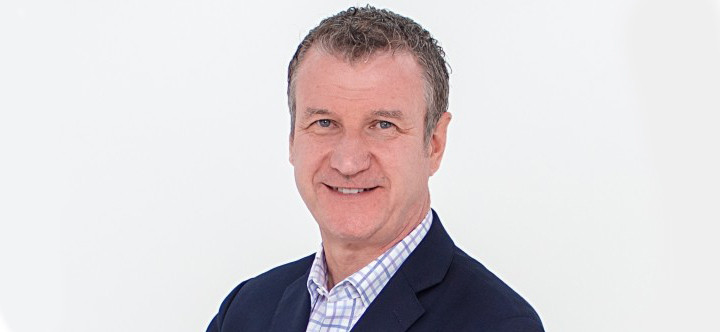Geoffrey Vince: "I would like to see technology developed by UTEC and Cleveland Clinic"

Geoffrey Vince is an experienced executive with a record of working in the hospital and healthcare industry; skilled in medical devices, biomechanics, entrepreneurship, tissue engineering and biotechnology. Currently, he is the chairman of Biomedical Engineering at Cleveland Clinic,Geoff Vince, as he prefers to be called, was present during the opening ceremony for freshmen at UTEC. He talked to us about the opportunities for creating technology in Peru, the newly developed projects between UTEC and Cleveland Clinic, and the skills new engineers should acquire to tackle today’s problems.
What are your thoughts regarding the development of the Biomedical Engineering program in Peru?
I think it’s phenomenal. Fabulous. I don’t know of any other program in Biomedical Engineering in Peru. [...] in South America there are, perhaps, two or three… some in Brazil, some in Chile and Argentina. But UTEC has the first program in Peru.
Do you think there is a field to work with here in Peru?
Yes. [...] Making low cost technologies for developing countries. I think that is where there is a real need, because in places like the U.S and Western Europe people are spending a lot of money developing really advanced technology and most of the world can’t afford it, so I think what we have is an opportunity in Peru to work on things that are less expensive, which won’t cost very much and will have a huge impact. We just need to train people, we need the engineers to work on it, training them in technology and that’s what UTEC is doing.
What do you think are the skills new engineers should develop for this?
English is really important. Anywhere you go. All scientific papers are in English, all scientific meetings are in English, and most of the patents are written in English, so, being an engineer is good, but I think you need to be able to communicate your ideas to everyone.
I think [new engineers should] understand business. I work in industry and one of the things I’ve learned is that you can be a really good engineer and you can come up with some great ideas, but if it doesn’t make commercial sense, it’s never going to impact the market.
UTEC and Cleveland Clinic started working together in 2015. How would you describe the evolution of the collaboration until today?
The evolution has been rapid. Fast, very fast and I love it. The road has been incredible. I met with the freshmen and they are getting better and better. I see our program growing up. We had multiple trips, not just me but my professors have come as well for teaching classes and now we are working to do remote teaching; that means some of my staff are going to teach classes at UTEC from Cleveland. This will be continued. In addition to Cleveland Clinic faculty teaching at UTEC, there will be remote classes as well simultaneously, which I think it’s huge.
What projects have you been working on recently with UTEC?
We have one about malaria detection, in which we can tell whether someone has malaria before they show chronic symptoms, simply by doing a blood test. The impact of this project can be huge. This can impact Peru.
The other project is about looking for cancer. Let’s say when a woman has breast cancer you have treatment, you have therapy, but does the therapy still work once you’re done? You must wait to see if the cancer comes back. We are working on a chip which will look for cancer cells, using a blood sample, which we can inject to find out if this person still has cancer or not.
You’ve had said that ‘‘innovation occurs when several fields collide’’. What do you think could be the impact of an holistic approach on education?
Let’s say you have engineers and you have physicians. Coalition is ¡bang!. This interface is very violent sometimes, it’s very confrontational, but that’s where innovation occurs because you can have hospitals that come with good ideas but they don’t have engineers to develop those ideas, while engineers can also present solutions that are not necessary. That interface is where the action happens.
What are your expectations about the upcoming projects between UTEC and Cleveland Clinic?
I would like to see a product on the market. If you are a doctor you are going to help maybe 200.000 people in your lifetime, if you are an engineer and you build an artificial heart, you can save billions of people. I would like to see a technology developed by UTEC and Cleveland Clinic which spreads all over the world. That’s my vision.